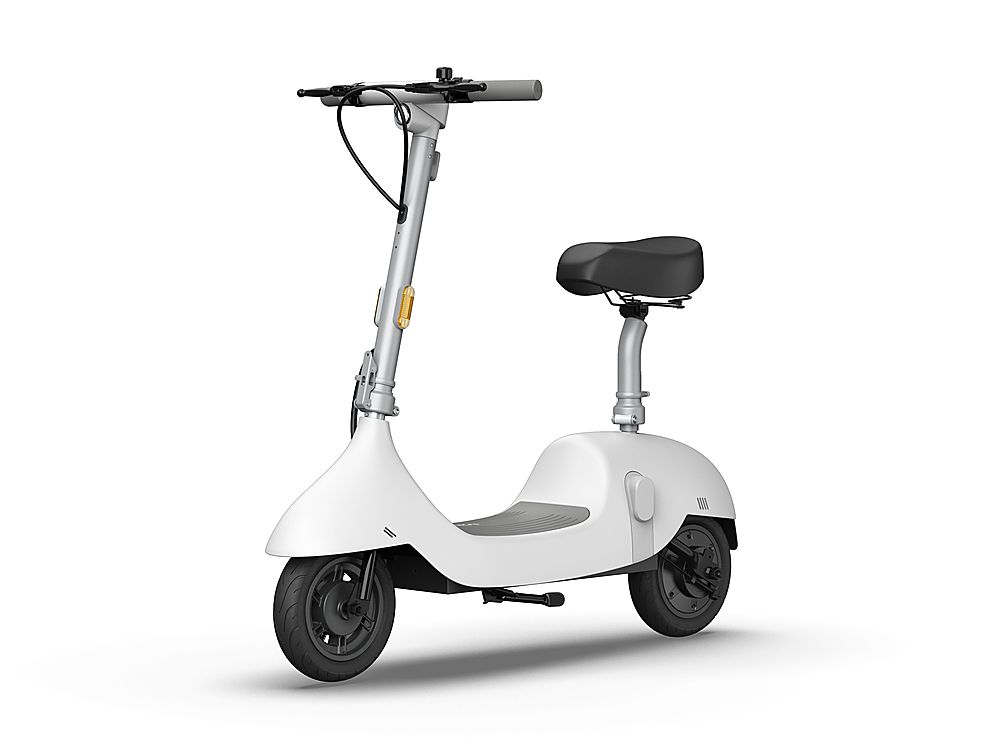The increasing popularity of electric scooters with seats has raised various ethical considerations related to their production and disposal. In order to ensure the long-term sustainability of the electric scooter industry, it is essential to address these ethical considerations and adopt responsible business practices.

Fair and ethical treatment of workers and suppliers involved in the production of electric scooters:
The production of electric scooters with seats involves a complex supply chain that often spans several countries. To ensure that workers and suppliers involved in the production of electric scooters are treated fairly and ethically, manufacturers should implement policies that guarantee employee rights, fair wages, and safe working conditions. In addition, manufacturers should conduct regular audits of their suppliers to ensure that they are meeting these standards. Failure to uphold fair and ethical treatment of workers and suppliers could lead to negative consequences, including reputational damage and decreased consumer trust.
Responsible disposal and recycling of electric scooters at the end of life:
Electric scooters have a finite lifespan, and at the end of their useful life, they need to be disposed of responsibly. Manufacturers should take responsibility for the end-of-life disposal of their products and adopt sustainable business practices that support responsible disposal and recycling. This includes designing electric scooters to make them easier to recycle, using environmentally friendly materials, and ensuring that they are disposed of safely. Manufacturers should also partner with recycling companies and other stakeholders to develop more efficient and sustainable ways to dispose of electric scooters.
Consideration of the global impact of electric scooter production and consumption:
Electric scooter production and consumption have a global impact, and manufacturers should be aware of this when developing their products. They should consider the social, economic, and environmental impacts of their products and adopt sustainable business practices that support responsible production and consumption. For example, manufacturers could reduce their carbon footprint by using renewable energy sources in their production processes. They could also use materials that have a lower environmental impact, such as bioplastics or recycled materials.
Importance of ethical business practices and corporate responsibility in the electric scooter industry:
Corporate responsibility is a critical component of the electric scooter industry. Manufacturers of electric scooters with seats have a responsibility to consider the impact of their products on society and the environment. They should prioritize ethical business practices that address these concerns and promote sustainability.
One important aspect of corporate responsibility in the electric scooter industry is transparency. Manufacturers should be transparent about their business practices, from the sourcing of raw materials to the production and disposal of electric scooters. By being transparent, manufacturers can build trust with consumers and other stakeholders, while also highlighting areas for improvement.
Manufacturers should also engage with stakeholders to address their concerns. This could include working with cities and communities to develop regulations that support sustainable transportation. For example, manufacturers could work with cities to develop bike and scooter sharing programs that are safe and accessible. Manufacturers could also partner with local organizations to promote bike and scooter safety and encourage the use of sustainable transportation options.
In conclusion, the widespread adoption of electric scooters with seats has raised various ethical considerations related to their production and disposal. It is essential to address these ethical considerations and adopt responsible business practices to ensure the long-term sustainability of the electric scooter industry. This includes ensuring fair and ethical treatment of workers and suppliers involved in the production of electric scooters, responsible disposal and recycling of electric scooters at the end of life, consideration of the global impact of electric scooter production and consumption, and the importance of ethical business practices and corporate responsibility in the electric scooter industry. By adopting responsible business practices, manufacturers of electric scooters can create a more sustainable and responsible industry that benefits everyone.